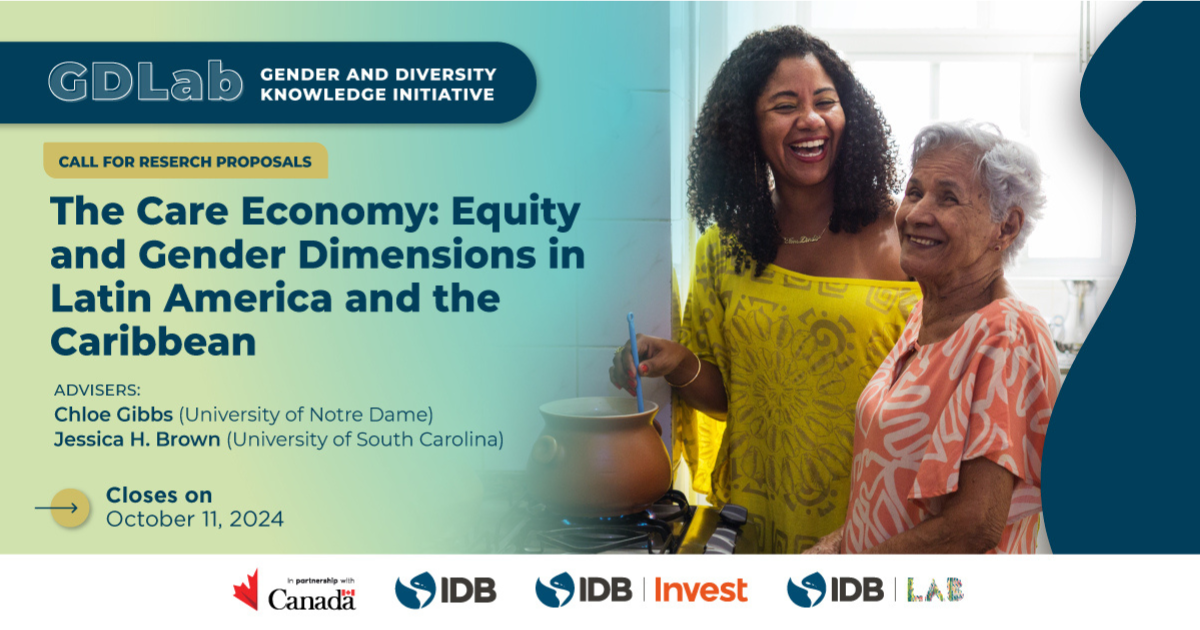The work of caregivers is fundamental to the livelihoods and well-being of societies. From caring for the home and young children, to supporting the elderly or people with disabilities. These tasks sustain the well-being of millions of people in Latin America and the Caribbean.
Despite its importance, care work falls disproportionately on women and girls and is often unpaid. The data are clear. Within the household, women spend an average of 22 hours per week on unpaid care work. This is twice as much as men. Moreover, the difference is accentuated in households with children under five years of age.
Likewise, women make up more than 63% of those who provide unpaid long-term care and contribute more than 72% of the total time spent on care by families.
In the paid labor sphere, care-related sectors are feminized. Of the approximately 9 million people working in the care sector in the region, 95% are women. Furthermore, this sector is characterized by low wages, precarious working conditions and lack of access to social benefits, especially in the informal sector.
Evidence for Designing More Equitable Caregiving Policies
Despite policy efforts to alleviate this burden and promote a more equitable distribution of care work, there are still large gaps in research.
Most studies have focused on descriptive content or on the analysis of how different policies affect women’s use of time and their participation in the labor market. Thus, causal evaluations and other crucial aspects such as mechanisms to encourage male participation in the sector are relegated to the background.
Likewise, gaps in knowledge about solutions designed to improve working conditions in the care sector or to support caregivers with a gender approach are identified.
It is important to identify evidence-based solutions that improve conditions in the sector and promote gender equity in the distribution of paid and unpaid work. This need becomes even more pressing given the growing demand for long-term care as a result of the region’s aging population.
Call for Research Proposals on the Care Economy
GDLab, the Gender and Diversity Knowledge Initiative of the Inter-American Development Bank Group (IDB Group), is launching a new call for proposals focused on the care economy. Through this call for proposals, GDLab seeks to fund quantitative academic studies that provide solid evidence on effective programs and policies to promote equitable care practices across gender and across the life cycle in Latin America and the Caribbean.
This call offers a unique opportunity to access funding and support for research that gathers evidence on the economics of care by addressing one or more of the following topics:
- Social norms and equitable distribution of care
- Policies and services for unpaid caregivers
- Intergenerational care
- Care infrastructure and services
- Working conditions
- Recognition for care workers
- Technological solutions to support caregiving work
Research proposals will be evaluated by a scientific committee composed of specialists from the IDB Group and scholars Chloe Gibbs (University of Notre Dame) and Jessica H. Brown (University of South Carolina). The committee will evaluate proposals based on their relevance, innovation, scalability, methodological clarity and quality, and the team’s ability to carry out the research.
Download the brochure! The deadline to apply is October 11, 2024.
See the information brochure for more details about the call for proposals and the application process. Don’t miss this opportunity.
Together, we can advance the generation of evidence that will drive more equitable care policies in Latin America and the Caribbean!



Leave a Reply